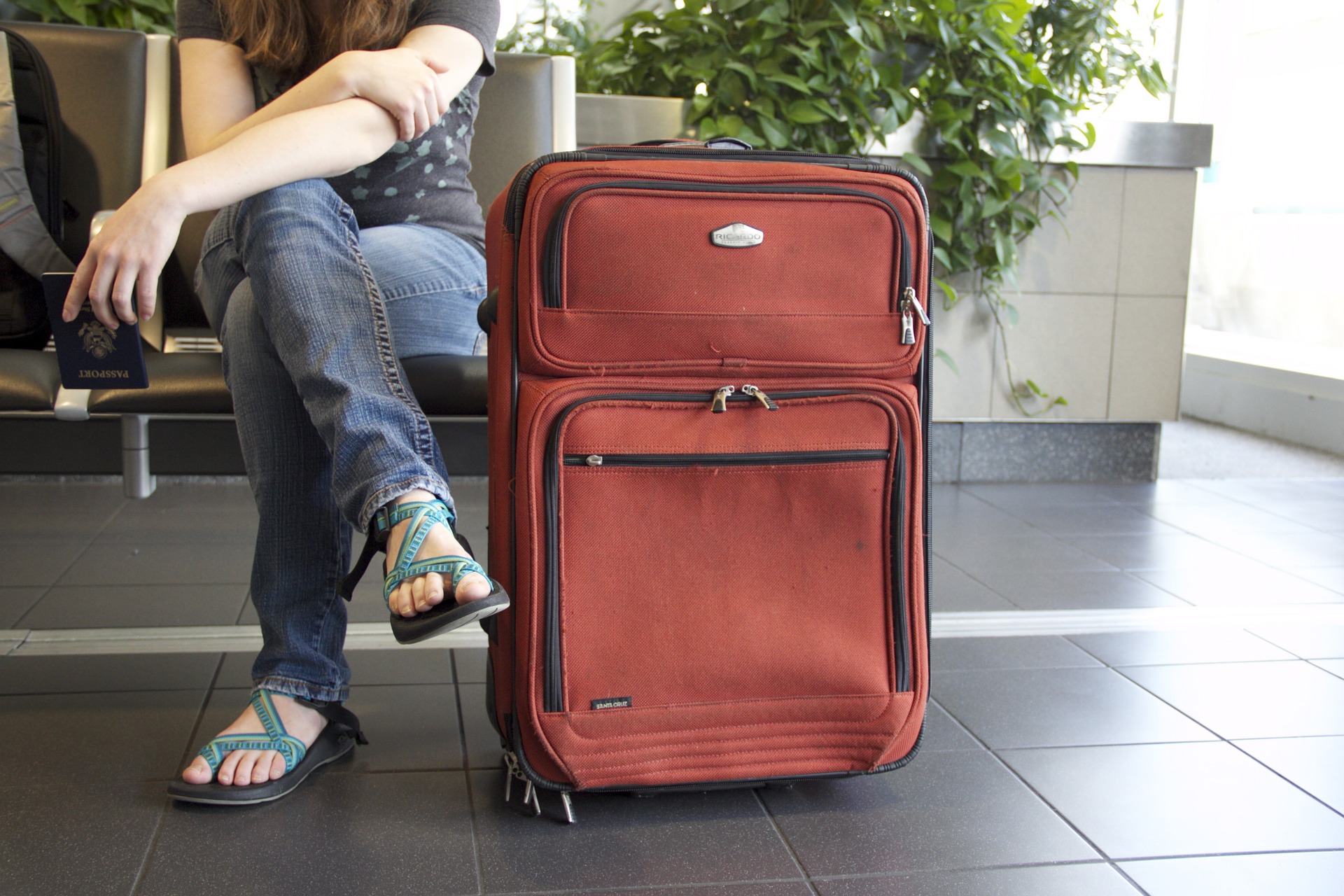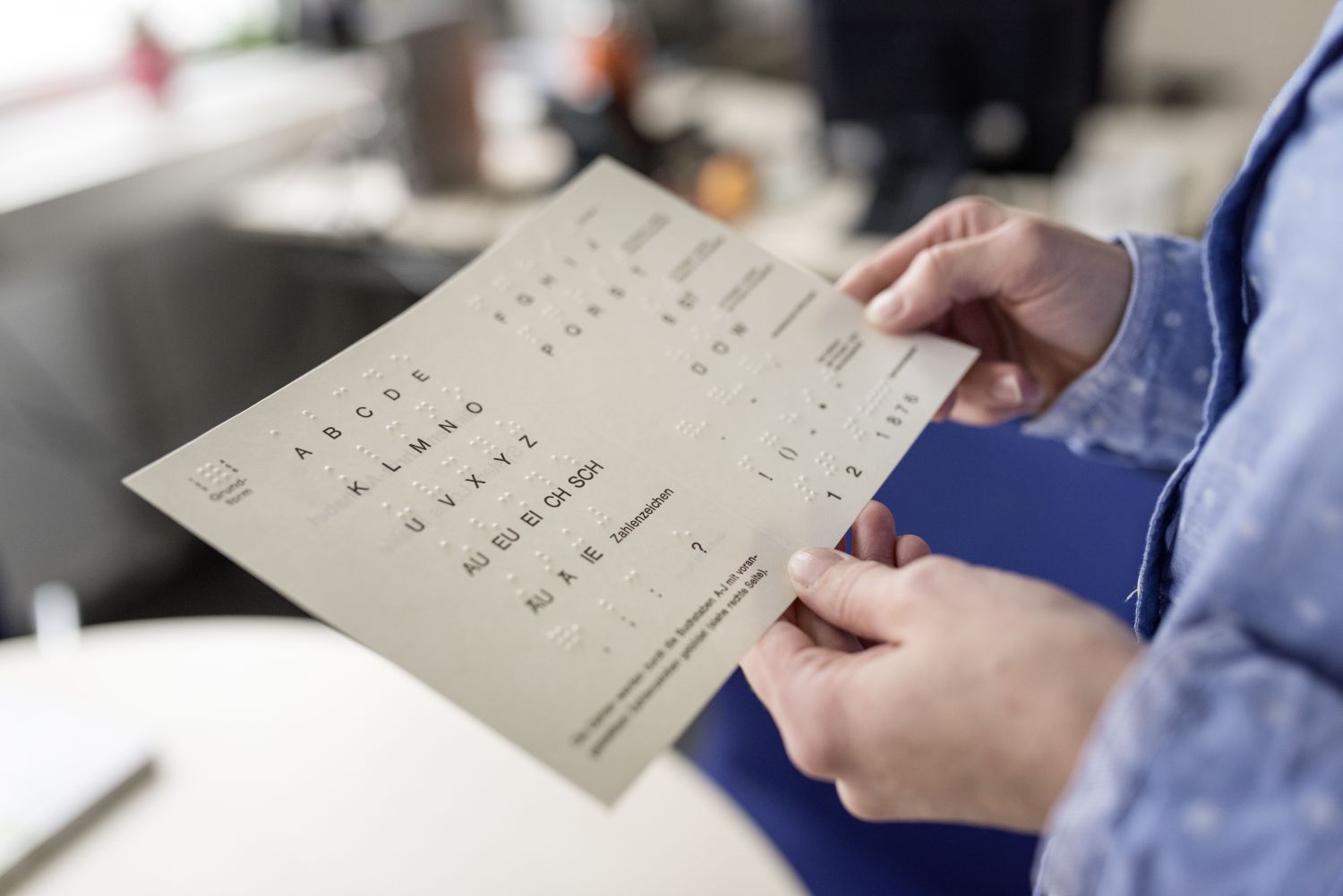
Here you will find information about what you should know before you start your studies and what you need to do before you arrive in Germany: information about the university landscape in Hanover, about university admission and the language skills required for studying, tips on entering Germany (visa, proof of funding, health insurance, etc.), on finding accommodation from your home country, on study costs and financing, and much more.
In Germany, it is possible to study at universities, universities of applied sciences as well as music, art and film academies. You can find a good overview of the German university landscape at the German Academic Exchange Service (DAAD) on the page The Right University.
Over 42,000 students are enrolled at Hanover's universities. The largest university is the Gottfried Wilhelm Leibniz Universität Hannover. Its main focus is on technical courses, but other fields are also represented. For example, there are humanities and linguistics, law, economics, etc. You can study human medicine at the Hannover Medical School. If you are interested in veterinary medicine, the University of Veterinary Medicine is the right place for you. Furthermore, there is the Hanover University of Music, Drama and Media for music and journalism as well as the Hanover University of Applied Sciences and Arts with various faculties (e.g. technical and economic sciences, social sciences and a wide range of media and creative studies).
You can find more information about the profiles of the universities and the study opportunities on the respective homepages:
Leibniz Universität Hannover ( LUH ) Hannover University of Applied Sciences and Arts ( HsH ) Hannover Medical School ( MHH ) Hannover University of Veterinary Medicine ( TiHo ) Hannover University of Music, Drama and Media ( HMTMH ) Hannover University of Applied Sciences ( FHDW )
Opinions about Hannover, the capital of Lower Saxony (500,000 inhabitants), are quite varied. This city is neither as multicultural as Berlin nor does it have as much flair as Paris or as great shopping rows as London. But those who live here quickly learn to appreciate the advantages: Large - but not too large, diverse leisure options - but no constant sensory overload, modern - but not sterile. In short: It's a great place to live. And if you do want to go somewhere else: Hanover is a transport hub. So you can get to other big cities or abroad very quickly by train or plane.
About the weather: In winter it can get quite cold with up to -10 °C, but there is rarely much snow. The summer usually has temperatures of up to 25 °C - and sometimes the thermometer rises to over 30 °C. Further information on the current weather can be found at wetter.com.
You can find more information about life in Hannover (transport, culture, leisure time ...) in the section "On studying".
You can also find a good overview of Hannover's geography, history, economy, culture and sights at Wikipedia. Detailed information on really almost everything is provided by the portal hannover.de.
The steps you have to take when applying for admission to a degree programme depend on your previous education and your country of origin. You can find detailed information on this at the German Academic Exchange Service (DAAD) on the page The Requirements.
A basic requirement for studying in Germany is learning the German language. You will need German in your studies as well as in your daily life. Even though many people at the universities in Germany speak English, you can really communicate only in German. The language is the key to your integration into daily life. Last but not least, language skills are very advantageous for job applications. Your future employer will certainly assume that you will return with a good knowledge of German after studying in Germany. As you can see, there are many good reasons to learn the language of your host country!
Take German courses at home! Ideally, you should already be able to speak German so well that you do not need to take any further courses in order to be accepted at the university.
When applying, you will be asked to provide proof of your language skills or to pass certain exams. You can find more detailed information on this at the DAAD on the German Language page.
The Fachsprachenzentrum (FSZ) of Leibniz Universität Hannover and the Zentrum für Fremdsprachen der Hochschule Hannover offer various language tests.
If you have any questions about your admission (attending a preparatory course, application deadlines, language tests, etc.) and your stay in Germany, please contact the International Offices of the universities. Contact persons and e-mail addresses can be found on the websites of the International Offices / Internationales Büros / International Offices:
Leibniz University Hannover, Hanover University of Applied Sciences and Arts, Medical University, University of Veterinary Medicine, Hanover University of Music, Drama and Media, Hanover University of Applied Sciences
Most foreign students need a valid visa to enter Germany. Detailed information about the regulations in Germany can be found at the German Academic Exchange Service (DAAD) on the page The Visa.
Immediately after your arrival in Hannover you have to apply for a residence permit. The DAAD has compiled a detailed information sheet on all questions concerning visas and the right of residence in Germany: Information on the Legal Framework for Entry and Residence of Foreign Students and Academics [PDF].
Most international students come to Germany without a scholarship. You have to prove to the German embassies and foreigners authorities in Germany that you can finance your stay. Therefore, you have to provide a so-called proof of financing. You can find detailed information about this on the portal "International Students" of the German Student Union (DSW) on the page proof of financing.
Before you can get a residence permit in Germany - whether for a language course or for studying - and enrol at a university, you have to prove that you have health insurance.
You can find important information about health insurance in the portal "International Students" of the Deutsches Studentenwerk (DSW) on the page Health Insurance and in the Illustrated Health Dictionary (German - English) of the DSW.
You can find more information about taking out health insurance below in the section "Arrival & First Steps".
Tickets
- Flight, train and / or bus tickets
Identity cards
- Birth certificate
- Passport valid for the entire duration of your studies (an extension is only possible in your home country!)
- Visa (if required; see visa page)
- Vaccination certificate (have you had all necessary vaccinations done before?)
- Emergency passport (blood group, allergies, ...) (if available)
- International driving licence or German translation of the driving licence (if available). More information on driving licences can be found at the Federal Ministry of Transport: Validity of foreign driving licences.
- International Student Identity Card (ISIC) (if available)
- Youth hostel card (if available)
- Several passport photos
Documents
- Certificates from secondary school (university entrance qualification) and - if available - from university with certified translations. Official certifications are also issued by the German missions abroad in your country.
- Language certificates (see page Admission and language skills)
- Letter of admission or confirmation of application from the German higher education institution
- Proof of financing (see page Proof of financing)
- Confirmation of statutory or private health insurance (see page Health Insurance)
Money and money cards
- Cash (Euro)
- In case of foreign currency, change enough money for the first days. You will need to use it to pay for public transport, food, perhaps your first nights in a hotel or hostel, or initial purchases for your room or flat.
- Credit card (if you have one; remember to get the appropriate blocking number for abroad)
Other
- Necessary medication
- Address book
If your study, visa and financial questions are settled, you should already try to find a room or an apartment from your home country - the internet makes it possible! It is very stressful to look for a room shortly before the start of your studies.
There are basically two types of student housing in Germany:
The Studentenwerk Hannover manages student residences in various parts of Hannover. They are all located close to the university. These rooms are considerably cheaper than rooms or apartments on the private housing market. The rooms are furnished, which is especially practical for foreign students. And last but not least, it is much easier to make contacts with other German and foreign students.
Among foreign students, the residences are highly sought after: around 45% of all international students in Germany live in student union residences.
Each residence hall of the Studentenwerk Hannover is supervised by a tutor for international students, who offers regular consultation hours and is happy to help with any problems.
You can already apply for a place in a hall of residence in your home country!
But: The places in the halls of residence are scarce. Therefore, apply as early as possible. But even if you apply early, it is not certain that you will get a place in a hall of residence at the beginning of your studies!
You can find detailed information about the residences, the application and the online application form on our homepage in the section Housing.
Erasmus students at Leibniz Universität Hannover can use the accommodation service of the International Office for rooms in the student houses of the Studentenwerk: Zimmervermittlung des Hochschulbüros für Internationales.
You can also start your search for your own flat or shared flat (WG) in your home country via the internet. The Studentenwerk Hannover offers a free online housing exchange where you can view room and flat offers in the Hannover region or post your own request. You can find further useful internet links for your flat search on the page "Wohnungssuche" (flat search).
About the term "Wohngemeinschaft", or "WG" for short: These are widespread in Germany. Two or more students rent an apartment together and share the rent and utilities. All residents have their own room, but kitchen and bathroom are shared. These communities often go beyond purely economic benefits. A shared flat can become a social reference point.
You can find out what you should bear in mind when signing a tenancy agreement in Germany from the German Tenants' Association (Deutscher Mieterbund).
It is worth taking a look at our film "Foreign Students and Housing". There we give you tips on how to find a place to live in and around Hanover.
Studying in Germany costs money, of course. In the "Money" section of our website you will therefore find important information - especially for studying in Hanover - about study costs.
In the internet portal "International Students" of the German Student Union (DSW) you will find general information about education costs in Germany.
One way of financing your studies is a scholarship. Basically, the following applies: Inform yourself and apply as early as possible! The competition for scholarships is very high.
There is a large number of scholarships and just as many award criteria: Scholarships for first-year students, for doctoral students, for good grades, social commitment, special study projects, etc. They are awarded by the state, churches, associations, business, political parties or private institutions. Many of these grants are aimed specifically at students from abroad.
You can find out which scholarships are suitable for you via the scholarship database of the German Academic Exchange Service (DAAD).
You can find scholarships and grants from Hanover's universities for international students on the homepage of the "Initiative Wissenschaft Hannover" under Internationales/Stipendien und Unterstützung.
Foreign students only receive state education funding (BAföG and educational loan) in exceptional cases.
General information about the conditions under which international students can receive BAföG and the education loan can be found on the internet portal "Internationale Studierende" of the Deutsches Studierendenwerk (DSW) on the page Staatliche Förderung.
If the regulations described there apply to you, you can find more information in the Money section of our website.
If you are unsure whether you can receive state funding for your education, our staff in the department of education funding will be happy to advise you.
Many students take on jobs alongside their studies to supplement their budget. For foreign students, however, the job opportunities are legally restricted. Our film "Foreign students and jobs" provides a good first overview.
You can also find important information on this topic in the internet portal "Internationale Studierende" (International Students) of the Deutsches Studierendenwerk (DSW) on the page Arbeiten im Studium (Working while studying).
The German Academic Exchange Service (DAAD) has published a detailed information sheet on working for foreign students [PDF].
Please remember that you have no guarantee of actually getting a job! Due to the economic situation, it is becoming increasingly difficult for students in Germany to finance their studies through gainful employment.
You can find everything on the subject of housing benefit in the "Money" section under "Other sources of money".
The coordination of raising children, household and studies requires a lot of energy and good planning. However, there are certainly relief options for students with children. These include, above all, childcare through crèches and kindergartens etc. You can find detailed information on our homepage in the section "Advice & Social Affairs" under the point Studyingwith a Child.
If you want to take your child or children with you to Germany, please note the relevant information on proof of financial support above under "Information on Entry".
As a general rule, get in touch with other students with children as soon as possible after your arrival! In a group it is easier to bridge short-term bottlenecks in childcare.
Of course, it is possible for people with disabilities or chronic illnesses to study in Hannover. There are barrier-free places to live in the student residences of the Studentenwerk. Nevertheless, many everyday processes are still more laborious and time-consuming than for non-disabled people.
Special information for international students with disabilities can be found on the internet portal "International Students" of the Deutsches Studierendenwerk (DSW) on the page Studieren with disabilities and chronic diseases.
You can find information for students with disabilities in Hanover (advice centres, accommodation with the Studentenwerk) on our homepage in the "Advice" section under the point Students with disabilities.






